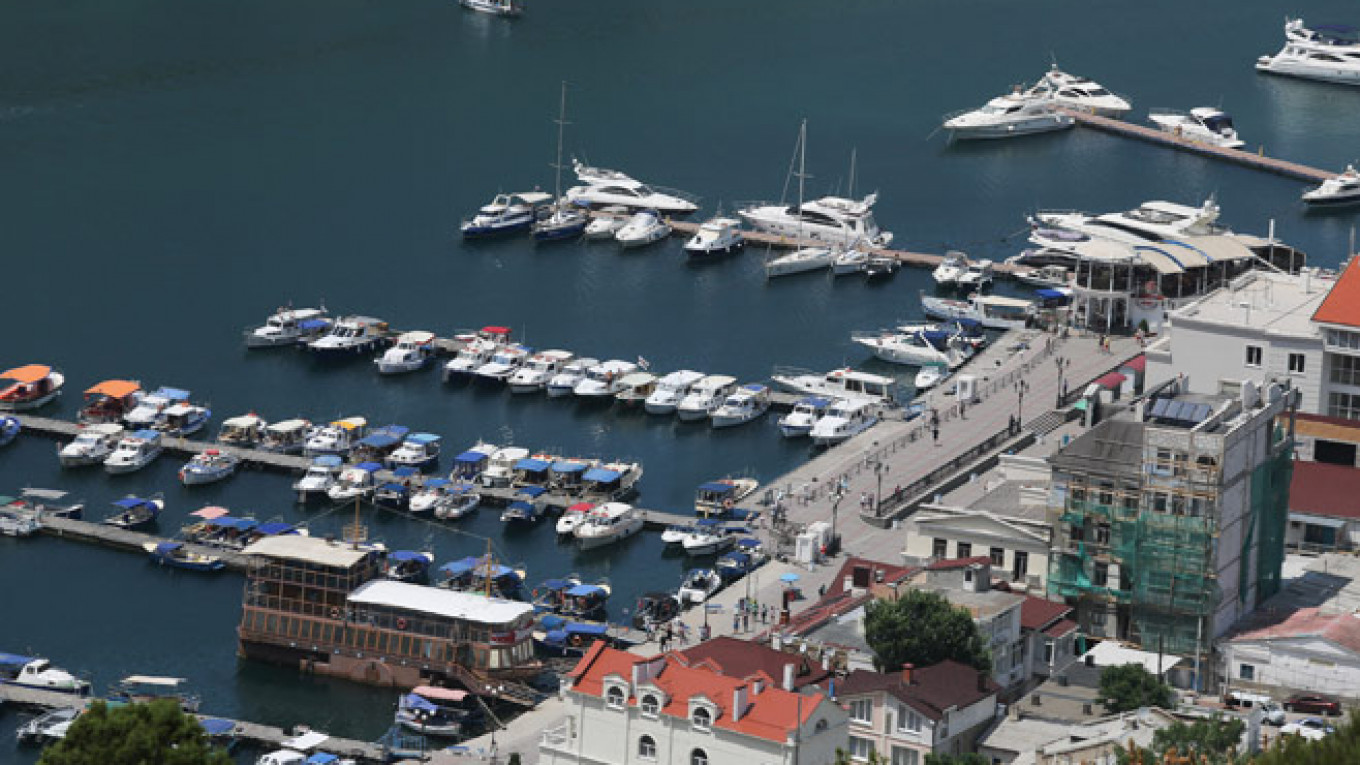Officials in the annexed Crimea region plan on creating a state corporation that will organize large deliveries of building materials to the peninsula, a news report said, as the region battles a supply shortage caused by poor relations with Ukraine.
Shipments from the Ukrainian mainland have been restricted since the peninsula was annexed by Russia last year. Crimea is now facing a deficit of sand, crushed stone and high-strength cement, RIA Novosti reported last week.
According to Crimea's Construction and Architecture Ministry, materials that start at 180-260 rubles ($3.30-4.80) per ton on the Russian mainland can cost up to 1,190-1,740 rubles ($21.80-31.90) per ton in Crimea after transport costs.
To fill the gap, the ministry's head Sergei Kononov suggested creating a state corporation dedicated to meeting the industry's needs, RIA reported.
"To solve the deficit problem and not permit an increase in the cost of building materials … we propose creating a state unitary enterprise with the goal of providing the construction industry with the necessary materials," Kononov said during a session of the regional government.
The region's head Sergei Aksyonov supported the initiative, RIA reported.
Prices across the Crimean economy have surged since the annexation, which disrupted established supply chains.
Year-on-year inflation hit 42.5 percent in Crimea last year, according to the Crimean State Statistics Service, significantly outpacing the 11.4 percent inflation seen in Russia as a whole.
Prices have continued to rise this year: The cost of construction materials climbed 15.7 percent in the first five months of the year, only slightly behind overall price inflation of 16.8 percent over that period, according to Crimean statistics.
A Message from The Moscow Times:
Dear readers,
We are facing unprecedented challenges. Russia's Prosecutor General's Office has designated The Moscow Times as an "undesirable" organization, criminalizing our work and putting our staff at risk of prosecution. This follows our earlier unjust labeling as a "foreign agent."
These actions are direct attempts to silence independent journalism in Russia. The authorities claim our work "discredits the decisions of the Russian leadership." We see things differently: we strive to provide accurate, unbiased reporting on Russia.
We, the journalists of The Moscow Times, refuse to be silenced. But to continue our work, we need your help.
Your support, no matter how small, makes a world of difference. If you can, please support us monthly starting from just $2. It's quick to set up, and every contribution makes a significant impact.
By supporting The Moscow Times, you're defending open, independent journalism in the face of repression. Thank you for standing with us.
Remind me later.


